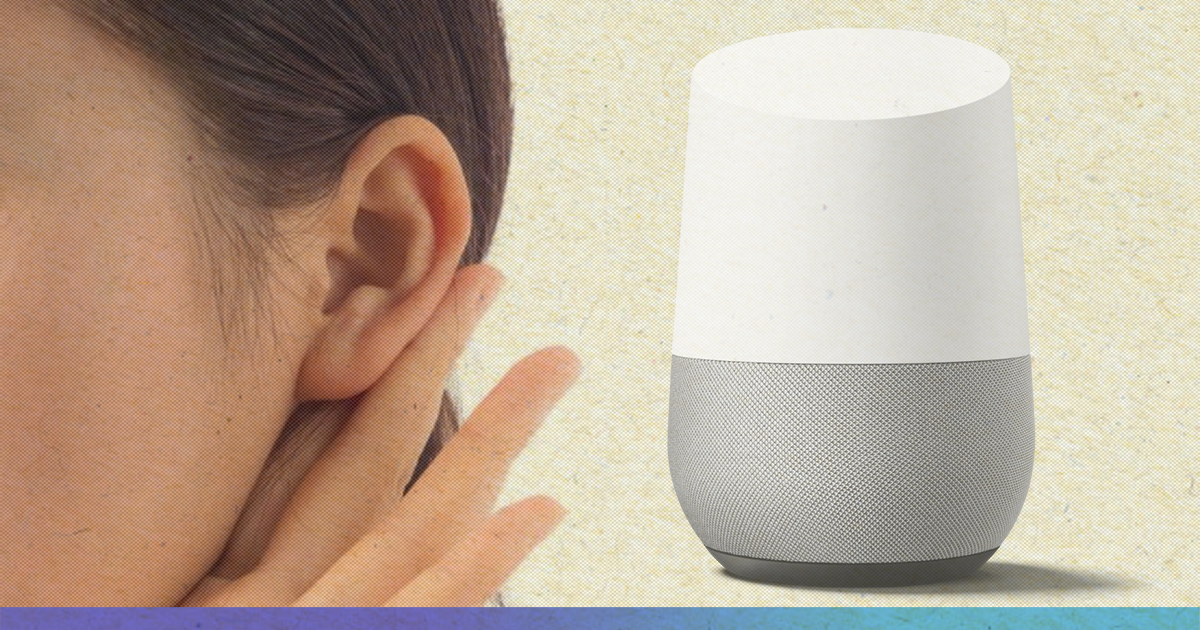Google employees hear customers’ audio recordings on Google Home smart speakers, the technology giant admitted after some of its Dutch language audio recordings were leaked.
The audio recordings comprise personal and sensitive information including locations, addresses, conversations and private data.
Some Conversations Tracked Down Were Not For The Assistant
According to a statement made by Google in the past, no user account information is associated with the recordings, and reviewers are directed not to transcribe background conversations.
However, the Belgian Broadcaster VRT NWS could easily track down some recordings and hear some addresses in more than 1,000 recordings.
Some of the conversations tracked down were not for the Assistant. They were either background noise or conversations that were not directed to the Assistant.
To activate Google Assistant, users need to say “OK, Google”, following which it begins to record. However, Google admits that the Assistant sometimes accepts recording requests by misinterpreting something else as “Ok Google”. This usually tends to happen when there is excessive background noise.
The company, in a blog post, announced that it is “conducting a full review of our safeguards in this space to prevent misconduct like this from happening again.”
Google also tried to defy the blame by saying that contractors listen to recordings for a better understanding of language patterns and accents. It also suggested that such an activity helps the Assistant improve its responses and interpret multiple languages.
“These language experts review and transcribe a small set of queries to help us better understand those languages. This is a critical part of the process of building speech technology and is necessary to create products like the Google Assistant,” Google posted on their company blog post, as reported by The Indian Express.
Google’s terms and conditions do not clearly mention that its staff can review the recording. However, they do state that the data can be analysed when the company updates its services or comes up with new features.
The recording feature of Google can be switched off, but this has repercussions. The assistant can sometimes lose some of its personalised features or the ability to be recognised by their voice pattern.
The technology, although switched on by default, prompts users to switch on the recording to get a personalised effect.
Google also accepted that it does not always delete or remove the stored data. It stores the transcripts until a user “manually deletes the information”. Users can switch off storing audio data to their Google accounts completely, or auto-delete data after every three or 18 months.
Also Read Govt Spent Rs 20 Lakh Cr On Family Planning Programmes Since 1974, To No Avail: TAXAB











